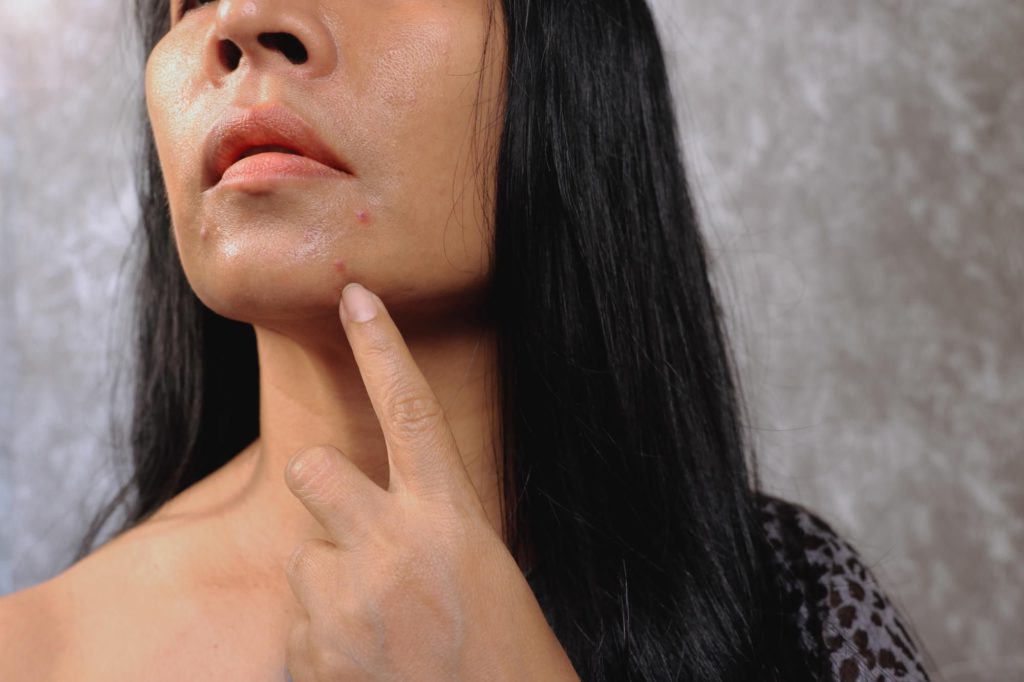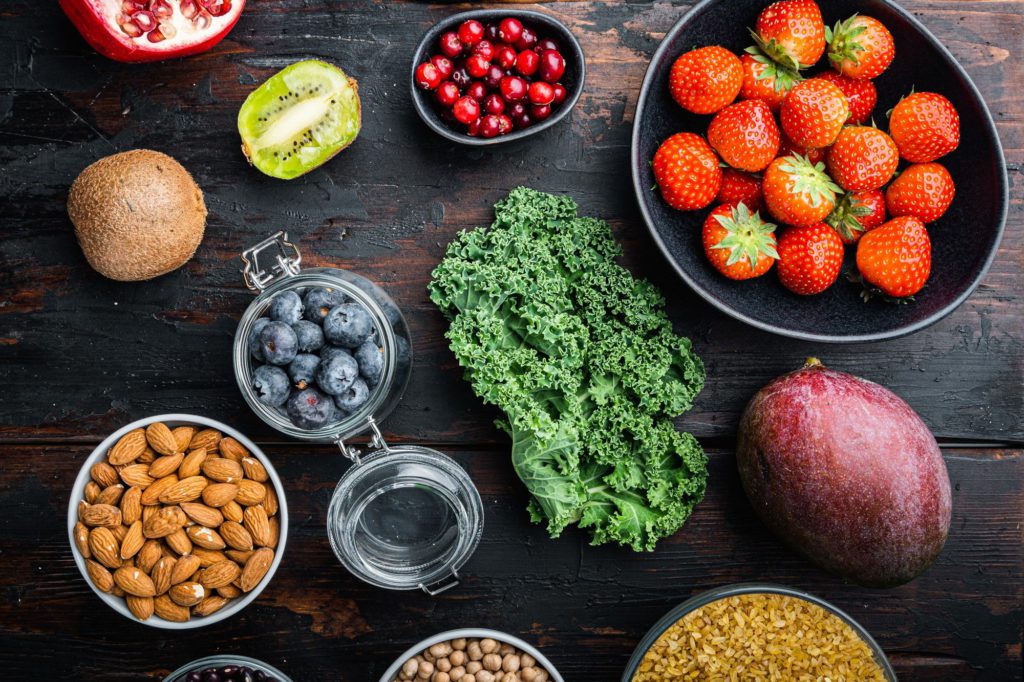Junk Food and Acne seem to go hand in hand, but does junk food cause acne? While hormonal changes during adolescence are often associated with acne, diet also plays a significant role in its development. Junk food, which is typically defined as processed, high-calorie, low-nutrient foods, is a popular dietary choice for many people, especially in developed countries.
However, studies have shown that consuming high amounts of junk food can have negative effects on the body, including an increased risk of developing acne. In this article, we will explore the connection between junk food and acne, and provide tips on how to improve your diet for healthier skin. By making healthier food choices and prioritizing a balanced diet, you can support healthy skin and reduce your risk of developing acne.
The Connection Between Junk Food and Acne
First, let’s define what we mean by “junk food.” Junk food is typically defined as processed, high-calorie, low-nutrient foods that are high in sugar, unhealthy fats, and salt. Examples include fast food, candy, chips, and soda.
So, how exactly does junk food cause acne? The answer lies in how these foods affect your body’s hormones and inflammation levels.

Junk food is a popular dietary choice for many people, especially in developed countries. However, studies have shown that consuming high amounts of junk food can have negative effects on the body, including an increased risk of developing acne. Acne is a common skin condition that affects millions of people worldwide, and while it is often associated with hormonal changes during adolescence, diet also plays a significant role in the development of acne.
Learn more about the causes and treatment of acne outbreaks and scarring, and how to prevent them from affecting your skin health.
Here are some key points that illustrate the connection between junk food and acne:
- Junk food is often high in sugar and refined carbohydrates, which can cause insulin levels to spike. High levels of insulin can lead to an increase in sebum production, which is a natural oil that the skin produces. When there is an excess of sebum, it can clog pores and lead to acne.
- Junk food is often high in trans fats and saturated fats, which can cause inflammation in the body. Inflammation can trigger the release of certain hormones that can contribute to acne.
- Junk food often contains artificial additives and preservatives, which can disrupt the balance of bacteria in the gut. An imbalance in gut bacteria can lead to inflammation and a weakened immune system, both of which can contribute to acne.
- High consumption of junk food can lead to weight gain and obesity, which are also risk factors for acne. Obesity can cause hormonal imbalances and inflammation, which can contribute to the development of acne.
While the occasional indulgence in junk food is unlikely to cause acne, a diet that is consistently high in junk food can have negative effects on the skin. To maintain healthy skin, it is important to consume a balanced diet that is rich in whole foods such as fruits, vegetables, lean protein, and healthy fats.
In conclusion, the connection between junk food and acne is clear. Consuming high amounts of junk food can lead to hormonal imbalances, inflammation, and a weakened immune system, all of which can contribute to the development of acne. To maintain healthy skin, it is important to limit the consumption of junk food and prioritize whole, nutrient-rich foods in the diet.
How to Improve Your Diet for Healthier Skin?
Now that we’ve established the connection between junk food and acne, let’s discuss how to improve your diet for healthier skin.

If you want to improve your skin health and reduce your risk of developing acne, it’s important to focus on a healthy, balanced diet. Here are some tips to help you make healthier food choices and reduce your intake of junk food:
Reduce your intake of junk food
- Start by eliminating or reducing your intake of junk food, such as fast food, candy, chips, soda, and other processed foods.
- Replace these with whole, nutrient-dense foods such as fruits and vegetables, lean protein, and whole grains. These foods contain essential vitamins and minerals that support healthy skin and reduce inflammation in your body.
Stay hydrated
- Water consumption is critical for healthy skin. Aim to drink at least 8-10 glasses of water per day to keep your skin hydrated and flush out toxins from your body.
Eat antioxidant-rich foods
- Antioxidants are essential for fighting inflammation and protecting your skin from damage caused by free radicals. Some antioxidant-rich foods to include in your diet are berries, dark leafy greens, and nuts.

Manage your stress levels
- High stress levels can disrupt your body’s hormones and lead to acne breakouts. Find ways to manage stress, such as meditation, yoga, or deep breathing exercises, to promote healthy skin.
Get enough sleep
- Lack of sleep can also disrupt your body’s hormones and lead to acne breakouts. Aim to get 7-9 hours of sleep per night to help keep your skin healthy and reduce your risk of developing acne.
Overall, the connection between junk food and acne is clear, and it’s important to make healthy food choices to maintain healthy skin. By reducing your intake of junk food, staying hydrated, eating antioxidant-rich foods, managing your stress levels, and getting enough sleep, you can support healthy skin and reduce your risk of developing acne. Remember that healthy skin starts from within, so prioritize a healthy, balanced diet to keep your skin looking its best.
If you’re struggling with acne and wondering how your diet might be contributing to it, it’s time to take action. Our team of experienced acne dermatologists at RemoteDerm specializes in diagnosing and treating various skin conditions, including acne. By consulting with an acne dermatologist, you can gain valuable insights into managing your skin’s health. Learn more about the impact of diet on acne in this article and explore personalized solutions with us.
Final Thoughts
In conclusion, the connection between junk food and acne is well-established, and it is important to limit the consumption of these foods and prioritize a balanced diet rich in whole, nutrient-dense foods. By doing so, you can support healthy skin and reduce your risk of developing acne. It is worth noting that in some cases, seeking professional advice from a dermatologist may be necessary.

With Remotederm’s online dermatology consultation services, accessible from anywhere, there is no need to wait for in-person appointments to get the care and advice you need for healthy skin. Remember that healthy skin is not just about what you put on it, but also what you put in your body. By making healthier food choices and taking care of yourself, you can achieve healthy, radiant skin.
FAQs
- How does junk food cause acne?
Junk food can cause acne by affecting the body’s hormones and inflammation levels. It can cause an increase in sebum production, inflammation, and disruption of the balance of bacteria in the gut, which can all contribute to the development of acne.
- What is the connection between junk food and acne?
Consuming high amounts of junk food can lead to hormonal imbalances, inflammation, and a weakened immune system, all of which can contribute to the development of acne.
- How can junk food cause acne?
Junk food can cause insulin levels to spike, which can lead to an increase in sebum production. It can also cause inflammation in the body, which can trigger the release of certain hormones that can contribute to acne.
- How can a balanced diet help maintain healthy skin?
A balanced diet that is rich in whole foods such as fruits, vegetables, lean protein, and healthy fats can provide essential vitamins and minerals that support healthy skin and reduce inflammation in the body.
